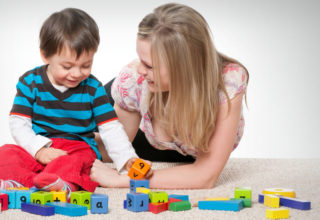How to structure the day at home with your child, specifically extended time periods at home is hard. Here’s our helpful pointers to make it a success.
Learn
Practical Advice for Parents
On Structuring the Day (Scheduling)
- Keep a routine. Keep it simple and clear.
- Having a schedule provides security for children. When they feel secure, safe and stable, their minds are more open and ready for learning.
- Keep the routine consistent, but schedule variety within the routine.
- Once a routine is established, you will find time for your own to-do list while your child is engaged in their own tasks – a great way to promote independence.
- Introduce or increase the number of chores.
- Do not be afraid to designate significant time for your child to help take care of the house; chores are important life skills (not to mention visual-spatial and executive functioning skills).
- Institute independent quiet time and stick with it.
- You do not need to be ‘on’ constantly just because you are at home together at all times. Children need physical and emotional space from each other, even if they are not able to articulate it.
On School
- Remind your child that they can be in charge of their learning, just like in school.
- Keep the ‘work’ engaging by keeping the learning in context – with consistent and clear expectations that this should be your child’s best work.
- ‘Work’ during this time is not differentiated in the way it typically is at school. i.e., For some children it will feel like a holiday; for others it may feel like a chance to be more creative and curious; for others it may be challenging.
- Short breaks helps your child self-regulate. Optimize your child’s learning and budget time in their schedule for quick, physical body breaks (play outside!) and snack and water breaks.
- If you want to introduce new content, ask your teacher (if they haven’t given you guidance yet) on how this works in partnership with the curricula your school has planned.
- If your child hits a tricky spot, is unhappy or is pushing back, let your teacher know. Teachers want their students to feel good about their learning and will often find creative ways to support a child’s learning.
On Finding Balance
- Allow yourself the space and time to do the work you need to get done and model respectful patterns of communication.
- Plan and communicate your own work with your child.
- Developing patience is a learned skill that comes with developmental maturity for a young child. But it is equally important for your child to respect that you also have boundaries and other commitments.
- “I see you’re really excited about something. I’m talking to Leila at work right now on the phone. It will be your turn as soon as I’m done.”
- “You really want to talk to me right now and I’m in the middle of finishing an email. It’s hard to wait, isn’t it? I will talk to you when I’m done with this.”
- Be kind to yourself and your child.
- Many people in a home with differing interests for an extended period of time is a recipe for conflict and short tempers. As challenging as it is, the resilience and flexibility it builds in all of us is a gift. Try not to sweat the small stuff.
- Build family time into every day. Get serious about taking time each day as a family. And *play* together! Go on a walk, play tag, read together, start a puzzle, play a game. Your child will remember these moments; they fill everyone’s buckets.
- If possible, spend 10 minutes a day of Special Time with each child. Let them choose the activity, set a timer, and devote yourself to them (uninterrupted). This goes a long way in helping them feel connected during an uncertain time and usually results in more cooperation and respect in the long run.

Jan Bird, Teacher + Parent
Jan is a First Grade teacher and literacy liaison at Marin Country Day School, an independent school in northern California. After teaching many years on the east coast, where she was fortunate enough to work with many talented educators, she moved west and is enjoying her work teaching students to be independent thinkers and learners. She is passionate about developing avid readers and writers and is always thinking about building efficient, accurate and flexible mathematicians. She is the mother of four grown children and is a proud grandmother of two.

Paige Abramson Hirsch, Teacher + Education Consultant + Parent
Paige Abramson Hirsch is an elementary school teacher turned lawyer turned educational administrator and educational consultant supporting school districts and charter schools. Paige studied psychology with a focus in child development at Tufts University and holds a JD/M.Ed from the University of Minnesota. Paige previously served on the Board of HAND, a non-profit for bereaved parents. She lives in San Carlos, California with her husband and two young children, whom she thanks for providing her with endless opportunities to analyze child development and behavior!
How to structure the day at home with your child, specifically extended time periods at home. Smart tips and a...
Ready-made cards with easy / no-prep, self-directed activities to entertain your toddler, preschooler and early learner. Excellent for when you...
Your go-to list of curated learning projects, activities and games that you can do at home to support your child’s...
Try having ‘Family Agreements’ instead of having ‘rules’. Family Agreements can be powerful yet simple tools for encouraging baseline behavioral...
Some children are naturally drawn to learning letters, while others may not begin to learn letter identification until they are...
Learning to count may seem simple, but it is critical to learning well. Here’s how to do it playfully. The...
Tips from an elementary school teacher for parents when teaching math. Key things to remember when supporting your child’s mathematical...
Consider this your guide and script for how to respond and deepen your child’s understanding of math. Learn how to...
Many of us are eager for our children to learn to write. It takes practice but it also needs to...
Learning to write is a hallmark in a child’s education journey. It empowers them to express themselves and their talents....
If you’re looking for a didactic list, here’s a theoretical, academic sequence for teaching your child to read. Just remember...
Increase critical thinking and curiosity when you read aloud. Take story time to a new level.
We may have grand intentions when it comes to involving our kids in chores. But how do you know which...
Knowing why transitions are difficult is half the puzzle. The other half is how to get through them. Teachers go...
Learn why children interrupt, what to say in the moment, and strategies for modeling patterns of communication. (It is hard...
Knowing why a child hits is the first step in handling a challenging ‘hitting’ situation. Next, how should you respond...
Sibling fighting and rivalry is normal and, in most cases, healthy. Learn how to resolve sibling conflict in 5 simple...
Help your child learn how to resolve a social conflict on their own with this framework – Wheel of Choices.


















